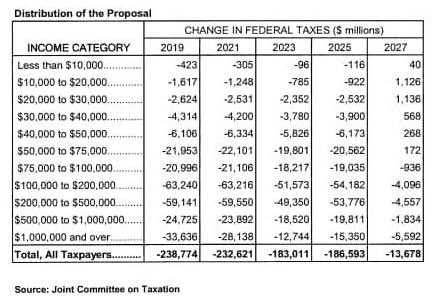Media bias is old news, but every now and then it can be really interesting. The following story illustrates why President Trump needs to hold on to his Twitter account.
This morning the Associated Press reported:
WASHINGTON (AP) — The top House and Senate Democrats said Wednesday they had reached agreement with President Donald Trump to protect thousands of younger immigrants from deportation and fund some border security enhancements — not including Trump’s long-sought border wall.
The agreement, the latest instance of Trump ditching his own party to make common cause with the opposition, was announced by Senate Democratic Leader Chuck Schumer and House Democratic Leader Nancy Pelosi following a White House dinner that Republican lawmakers weren’t invited to attend. It would enshrine protections for the nearly 800,000 immigrants brought illegally to this country as kids who had benefited from former President Barack Obama’s Deferred Action for Childhood Arrivals, or DACA, program, which provided temporary work permits and shielded recipients from deportation.
Fox News reported today:
President Trump on Thursday denied reports that he struck a “deal” overnight with top Democrats to protect so-called “Dreamers,” while insisting “massive border security would have to be agreed to in exchange for consent.”
Trump’s Twitter post was in response to Senate Minority Leader Chuck Schumer, D-N.Y., and House Minority Leader Nancy Pelosi, D-Calif., announcing after a dinner meeting at the White House that they had “agreed to a plan to work out an agreement to protect our nation’s DREAMers from deportation.”
They also said “we would review border security measures that didn’t include building a wall.”
The president clarified Thursday morning that he intends for the wall to be built — and while he wants to helps Dreamers, there’s no deal yet.
The political consequences for President Trump if he does not build a wall would be enormous.
On Tuesday The Hill posted an article about support for the wall among Americans.
These are a few highlights from the article:
Last February, Pew reported similar findings: 62 percent of Americans oppose building a wall. Only 35 percent support it.
But are we telling the whole story?
First, it’s worth looking at what Pew asked: “All in all, would you favor or oppose building a wall along the entire border with Mexico?” To me, it’s a confusing question. After all, there already is a wall or fencing along approximately 700 miles of the southern border. It might make more sense to ask, “Would you favor or oppose building a wall along the remaining, unwalled portion of the border with Mexico?”
…While we’re in the weeds, assuming there’s value to asking a poll question about something that nobody is proposing, there’s additional nuance to consider. Pew ended up with a Democrat-heavy sample: 38 percent Republican/Republican leaning and 52 percent Democrat/Democrat leaning. The 14 percentage point difference means Pew interviewed 38 percent more Democrat thinkers than Republican thinkers. I can’t find any estimate that says the actual U.S. population is politically lopsided along those lines.
That is how you skew a poll.
The article at The Hill concludes:
There are two things we could do to provide more meaningful reporting. First, when addressing polls on political topics, we should disclose the breakdown of Democrats and Republicans upfront. To state the obvious: findings from a sample that’s made up of 98 percent Republicans will be entirely different than findings from a sample of 98 percent Democrats. How can meaning be put behind results on any political topic without the partisan makeup of the sample being considered?
Second, our reporting could include opposing findings and trends, if they exist. For example, in the most recent Pew poll, “three-quarters (74 percent) of Republicans and Republican-leaners supported a border wall” and that support had grown substantially in recent months. Conservative Republican support for a wall was up nine points since Trump was elected President (from 71 percent to 80 percent).
Support also grew among moderate and liberal Republicans (from 51 percent to 60 percent). An accurate headline could just as well have been: “Poll shows growing Republican support for a wall under a Trump presidency.”
All things considered, I came up with my own headline that’s more transparent than many of the ones I saw: “In polls with Democrat-heavy sampling, there’s overwhelming opposition to building a wall along the ‘entire’ border; a concept that nobody is, in fact, proposing.”
The article at The Hill was written by Sharyl Attkisson (@SharylAttkisson), an Emmy-award winning investigative journalist, author of the New York Times bestsellers “The Smear” and “Stonewalled,” and host of Sinclair’s Sunday TV program “Full Measure.” If you are not familiar with her story, please search for her on the Internet and read her history. She definitely knows what she is talking about.
 The Gateway Pundit reported the following yesterday:
The Gateway Pundit reported the following yesterday: The Gateway Pundit also points out:
The Gateway Pundit also points out:


